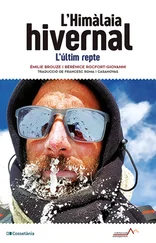‘Marina, your body knows ,’ he tells her.
But what Marina thinks is that Mr. Therapist doesn’t know shit. She suspects that he would have liked to be a surgeon but could never tell his blood cells from his blood clots. She suspects he had to throw in the towel, the kudos, and all the other more pressing issues they take care of elsewhere in the hospital. She suspects he had to resign himself to Floor 8, Psychiatry: Sudokus for the soul.
*
A few raindrops fall on the water tank. The wet black gleams: weckbleam. When she first rented Bitter last summer, it rained every afternoon, even inside the house, and she dashed around here and there catching the drips in pans and thinking to herself cheerfully, ‘Wasn’t Mexico City supposed to be dry? Wasn’t Mexico City really, really dry?’ Back then she had no more to her name than her nineteen years and some waitressing savings. The money she gets now — the fat, guilt-ridden check her father sends her — didn’t exist during those first months. She stored her things in a makeshift closet built out of bricks and boards, which she painted gold in a burst of enthusiasm. (Goldasm.) She drank out of yogurt pots. She bought a mattress and a single pillow. These days she looks at the house and feels suffocated by all the stuff she’s collected. She sees the money from the restaurant in everything — the restaurant and the cooks’ sweat; how they’d pick their teeth with their index fingers and then, without a second thought, work the meat with their hands, blood and fat on their apron pockets. On the street the relentless Xalapan drizzle, and in the kitchen the tiled floor growing steadily more filthy as the day went on, making the soles of their shoes squeak against the accumulated footprints that marked the senselessness of it all. And that senselessness played out from one day to the next, but — she’d often felt this in the kitchen — merely repeating itself. In her growing collection of stylish pillows she sees the thousand layers of mascara on the provincial middle-class women who would flock to the restaurant desperate for a ‘girls’ night out’, which always seemed to Marina too hysterical, too high-pitched to signal any kind of real friendship. They called each other ‘girl’, because youth was their holy grail. The rejuvenation cult never fails to disconcert Marina who, no matter what age she turns, always wishes she were older.
The women would call her over, ‘Pst! Hey! Señorita! Miss, another pitcher of sangria.’ Perfect teeth, too much perfume, never a morsel left on their plates. Some of them would shamelessly click their fingers at her, then slip her an extra tip because she knew their daughters.
‘An Italian restaurant!’ Marina explained to her therapist, with a floating exclamation mark. But he doesn’t get the irony. He is incapable of visualizing the Italy of the Mexican provinces: Venice — its eternally vanilla sky — depicted in shoddy frescoes on the walls, and the pasta routinely, even purposely overcooked. Mr. Therapist is too worldly to even begin to imagine the stale cosmopolitanism of those who hop over the border for some retail therapy in McAllen, Texas, but don’t dare venture to Mexico City. And he is far too optimistic to see how everything she owns is linked to the restaurant, to her father’s temper, to the damp walls, and a social class she can despise all she wants, but which still pays her bills.
Although, in truth, this revulsion she feels toward her belongings has only developed over the last few months, since she left the hospital.
‘If there are two million cushions, and a rug, and a sofa,’ she asks in her session, ‘how am I ever going to get out of here?’
‘Where would you like to go?’ Mr. Therapist asks.
But she doesn’t want to go anywhere. Quite the opposite, she’d like to spend more time in her house. She wants to be home when the whomise lights up her wall. She’s twenty years old, is that so much to ask? She opens the fridge. Beer, pickles, two tomatoes, mustard. A couple of yogurts, a collection of jellies and jams that Chihuahua buys and then dishes out sparingly as if they contained gold dust. There isn’t any blue cheese in the fridge. There is, however, an egg. Also a set of Tupperware containers that have been there for ages and which she doesn’t dare open. There’s a bottle of ketchup with so much dried sauce around the hole that the top won’t close, like those people who talk so much a thin layer of crust grows in the corner of their mouth. Some carrots she bought weeks ago fester in the tray at the bottom. She used one to masturbate with, then threw it away. The rest are still there. She never worked up the energy to peel them. Fuck, she’d bought them in curative mode. Linda always has a Tupperware full of crudités. Whenever Marina is over there she takes one every time she passes the fridge. Why can’t she be more like Linda: seemingly laidback, but an impeccable master of juliennes?
‘Popcorn. That’s it. Yes,’ she thinks.
It’s a tiny sign, no saliva or taste-pore activation or anything, but she finds some popcorn in the sideboard and quickly pops the bag in the microwave. While it cooks, she takes the carrots out of the fridge to peel one, but instantly changes her mind. They’re soggy. And that’s not all. A few of them have what looks like hair on them, gray-green hair: penicillin, maybe. Disgusted, she throws them back in the vegetable tray, takes out a beer, and closes the fridge. The popcorn goes pop, pop, pop.
‘You should eat, Marina love.’
I know.
She puts the popcorn in a bowl, takes it over to the sofa and turns on the TV. Chihuahua turned up the other day with a TV and now it lives on the living-room floor.
‘Can I hook it up to my computer to watch movies?’ Marina asked him.
But Chihuahua had other ideas: he said he’d found something in the closet that looked to him like a ‘Cable cable’.
‘Huh?’ said Marina.
She was also going to ask, ‘What were you doing rummaging around in my closet?’ But Chihuahua was already dragging over the cable; a great long thing rolled up in a neurotic figure of eight which could only be his doing. They moved the TV to where the cable reached, plugged it in and NBC news blinked onto the screen. The presenter was a blond in a pantsuit, the day’s dramas racing across her chest on a rotating sash, like a Miss Tragic Universe 2003.
So the cable was hooked up to cable TV. Marina couldn’t believe her eyes. Chihuahua had never mentioned it. But then, so what if he had? She wouldn’t have given it a second thought. She certainly wouldn’t have gone out and bought a TV just to test the thing. Who could have known that all this time, lying in her closet, there was a portal to another dimension, to the day-to-day lives of the rich, of grown ups, of people who watch US TV when they get back from work to shake Mexico off, as if following a twenty-first century version of Manuel Carreño’s Manual of Urbanity and Good Manners — ‘Be sure to dismount from Mexico before entering the dining room’? Chihuahua was who. Chihuahua knew because he’s a big-city boy. It was him who explained to her that the shoes hanging by their laces in the street mark drug-dealing spots; he also showed her who in the neighborhood steals the phone cables to peel them and sell the copper. What annoys Marina is that Chihuahua isn’t even from the capital: he’s from Ciudad Juárez. She once asked him, ‘How much less provincial could your border town be than Xalapa?’ To which he replied, ‘Oh, Juárez is provincial, all right. But it’s two countries’ provinces at once.’
Chihuahua pronounces English the same way Linda does: seamlessly. Marina tries to copy him but he gets annoyed when she obsesses over his accent.
Читать дальше












